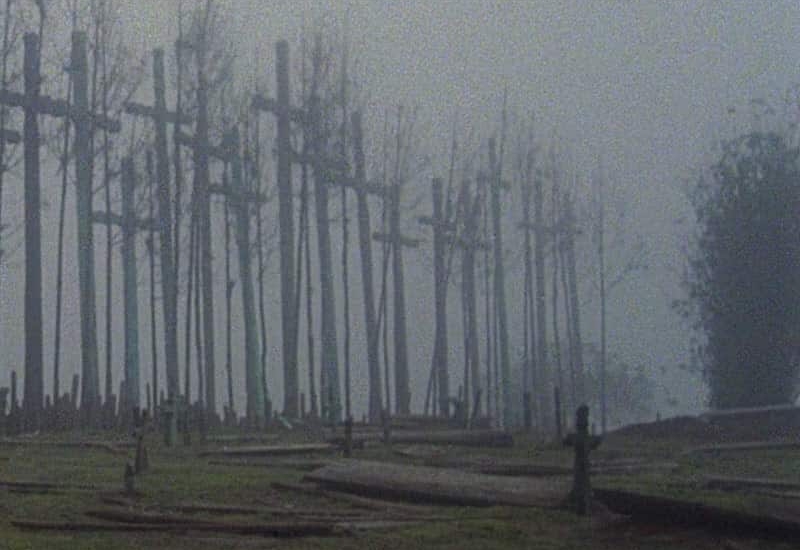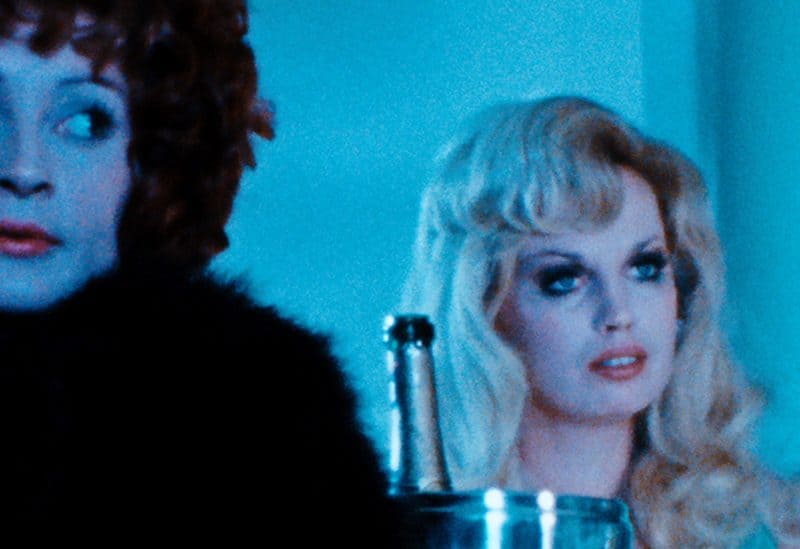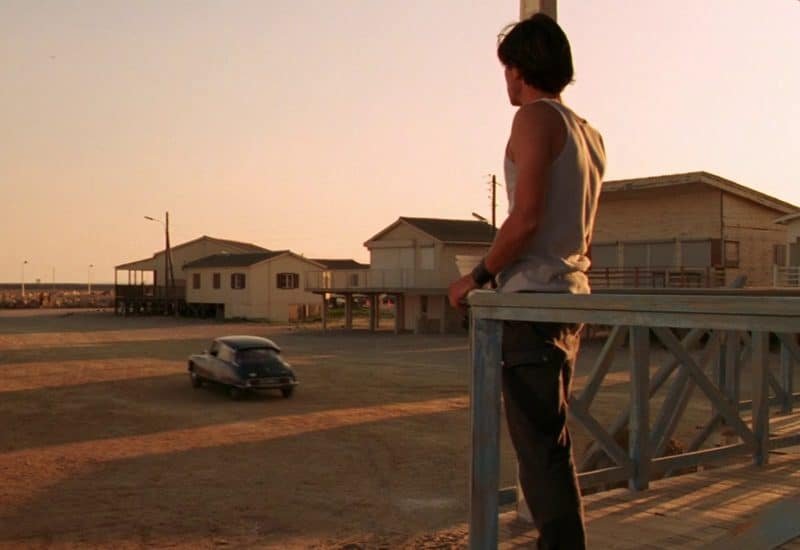film movements
page 2
1950s - 1980s
The British New Wave represented a surge in the creative aspirations of young British filmmakers during the late 1950s, influenced by American and European art cinema, they were inspired to craft their own distinctive works. Critics coined the term "new wave" to draw parallels between it and the French New Wave of the late 1950s. Both movements prioritized social realism and naturalism, often centering their narratives on young working-class characters and settings.
Characterized by its courageous experimentation, sharp wit, and fondness for social commentary, this cinematic movement challenged the prevailing norms of its time. The Czechoslovak New Wave explored subjects that previous filmmakers in communist nations struggled to depict without encountering censorship. These films frequently conveyed a blend of dark and absurd humor, a stark departure from the predominant social realism seen in the films of the 1950s.
Cuban Revolutionary Cinema started in the wake of the Cuban Revolution of 1959, a transformative period that saw the overthrow of the Batista regime and the rise of Fidel Castro. The new government recognized cinema as a powerful tool for cultural and political expression, leading to the establishment of the Cuban Institute of Cinematographic Art and Industry (ICAIC) in 1959. ICAIC aimed to produce films that reflected revolutionary ideals, national identity, and addressed social issues.
Bold and subversive, the Yugoslav Black Wave is characterized by its dark humor, social critique, and rejection of traditional filmmaking conventions. Themes encompassed everything from sexuality and politics to religion. As a result, many of these films were banned, and some notable directors forbidden from working in Yugoslavia. Filmmakers like Dusan Makavejev and Zivojin Pavlovic played pivotal roles in this movement, producing thought-provoking and often controversial works that left a lasting impact on the Yugoslav and Balkan film landscape.
Third Cinema emerged in the mid 1960s as a response to the dominant ideals of Hollywood (1st Cinema) and European art cinema (2nd Cinema). Grounded in the principles of social justice, cultural authenticity and political engagement, it represented a radical departure from traditional filmmaking, aiming to address the socio-political realities of the Global South, particularly in Latin America, Africa and Asia. Third Cinema sought to create a space for the voices of those who had been historically marginalized and silenced in the global discourse.
Or New Hollywood, a revolutionary era in American filmmaking, that challenged traditional studio practices and embraced artistic freedom. With visionary directors like Kubrick, Coppola, Scorsese, Altman, and groundbreaking films like "The Godfather", "Taxi Driver" and "2001: A Space Odyssey", it introduced innovative storytelling, tackled societal issues, and left an enduring legacy that continues to influence contemporary cinema worldwide. American New Wave's legacy persist as a beacon of cinematic innovation and cultural reflection, and remains one of the most important film movements in cinema to this date.
New German Cinema, a prominent film movement in the late 1960s and 1970s, marked a resurgence of German filmmaking after a period of decline. It emphasized realism, explored social and political themes, and introduced internationally acclaimed directors like Rainer Werner Fassbinder, Werner Herzog and Wim Wenders. This film movement played a pivotal role in reinvigorating German cinema, and got critical acclaim at many international festivals.
A revolutionary film movement that redefined Iranian and Asian cinema. Distinguished by its genuine portrayal, innovative narrative methods, and unflinching examination of societal matters, it illuminated the diverse tapestry of Iranian culture. The Iranian New Wave emerged amidst a period of transition and cultural renaissance in Iran. In the late 1960s and early 1970s, the nation was undergoing substantial political and social transformations, fostering a sizable middle class hungry for intellectual and artistic outlets.
Characterized by its fresh and daring storytelling, the Australian New Wave brought a unique Australian perspective to the world of cinema. In stark contrast to the earlier films, those works were perceived as innovative and imaginative, characterized by vibrant energy, an appreciation for expansive landscapes, and with tendency for sudden violence. The straightforward storytelling approach found in numerous Australian New Wave films evoked memories of the auteur spirit of the New American Wave.
The Budapest School is a term used to describe a group of Hungarian filmmakers active primarily during the 1970s and 1980s. This movement is known for its socially engaged, realistic portrayals of everyday life and its critical examination of Hungarian society under Communist rule. The Budapest School filmmakers sought to capture the complexities of human relationships and the nuances of social issues with a naturalistic style, while using their works to critique various aspects of Hungarian society, including bureaucratic inefficiencies, social inequalities, and the limitations imposed by the Communist regime.
L.A. Rebellion, an innovative cinematic movement that surfaced during the 1970s, signifies a pivotal phase in American film history, it was driven by Black filmmakers predominantly from the University of California, Los Angeles (UCLA). This movement challenged conventions, championed authentic storytelling, and redefined the portrayal of African American experiences in film. The emphasis of L.A. Rebellion was on identity and the daily experiences within Black communities.
The Cinema of Moral Anxiety, or Kino moralnego niepokoju in Polish, represents a pivotal movement in Polish cinema, emerging in the 1970s and continuing into the early 1980s. The term was also translated as “cinema of moral unrest” and “cinema of moral concern”. This era is distinguished by its exploration of ethical and moral dilemmas faced by individuals under political repression and social transformation. The movement arose during a time of significant political unrest in Poland under the Communist regime, which exercised stringent control over artistic expression through censorship.
Provocative and avant-garde film movement that unfolded in New York City during the late 1970s, represents a bold departure from traditional filmmaking norms. Characterized by its raw and unapologetic style, the movement challenged conventions, and brought a gritty, urban edge to the world of cinema. Filmmakers embraced low budget, DIY (do-it-yourself) aesthetics, and fearless approach to storytelling, leaving an enduring mark on the history of independent filmmaking.
Dynamic and influential film movement of the late 20th century, orginated from the vibrant and overcrowded streets of Hong Kong. Characterized by its innovative storytelling, action-packed sequences, and exploration of contemporary social issues, this movement reshaped the landscape of Asian cinema. Hong Kong New Wave films embraced new technologies such as synchronous sound, innovative editing techniques and on-location shooting.
Cinema du Look, a transformative film movement of 1980s French cinema, defined by its visually striking aesthetics and sensory-driven storytelling. Filmmakers such as Jean-Jacques Beineix, Luc Besson and Leos Carax, adopted bold colors, innovative editing techniques and an exploration of urban life, delivering an immersive and emotional cinematic experience. With many classics, Cinema du Look redefined French cinema, and its still influencing it to this day.















